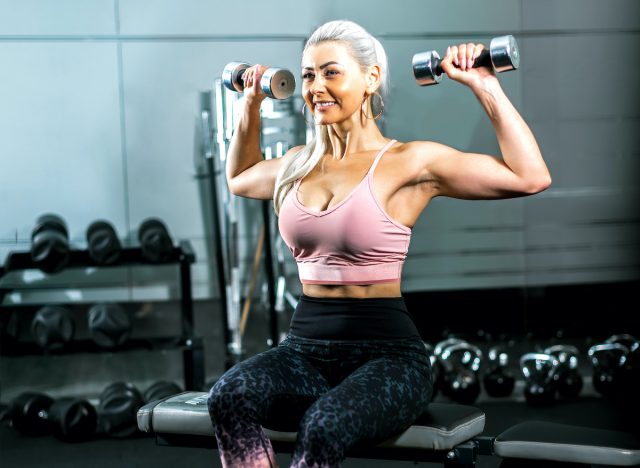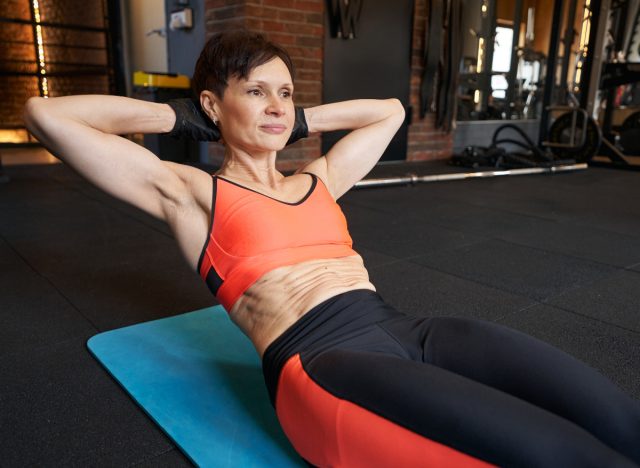How To Maintain Your Abs as You Age—and Why It Matters

Maintaining strong, sculpted abs as you age becomes challenging—but it's still absolutely possible. The importance goes beyond aesthetics, too. Building and preserving core strength boosts your balance, posture, functional strength, and ability to perform daily tasks with ease. In this article, we consulted with a fitness and nutrition expert who shares his best tips to maintain your abs as you age. From consuming a nutritious diet to performing weight training and core-specific exercises, making essential tweaks in your routine can make all the difference in the world.
Table of Contents
- How To Maintain Your Abs as You Age
- How Does Age Affect Core Strength and Abdominal Definition?
- Why Preserving Core Strength as You Age Matters
How To Maintain Your Abs as You Age

"The strategies that are most effective include maintaining a balanced diet, appropriate and to meet your needs, consistent core-focused exercise, and increasing overall energy expenditure," explains Dr. Chris Mohr, fitness and nutrition advisor at Fortune Recommends. "A balanced diet helps manage body fat levels, which is important since our metabolism can slow down with age. Exercise routines should include weight training to build and maintain muscle, including some specific core exercises like crunches and planks, among others."
These key habits can enhance core strength and balance, which is useful for maintaining overall muscle strength as you age. Staying consistent with them is crucial, as regular workouts adapt well to your changing body, helping to manage fat and preserve lean muscle mass.
How Does Age Affect Core Strength and Abdominal Definition?

"Age can impact core strength and abdominal definition as muscle mass naturally decreases and fat distribution may increase around the midsection," Dr. Mohr tells us. "The connective tissues in the abs also become less elastic, making it harder to maintain muscle tone."
To tackle these changes head-on, it's essential to tweak your ab routine by increasing the variety of exercises so your muscles are continuously challenged. This addresses the natural muscle loss due to aging, also known as sarcopenia.
"Incorporating resistance training alongside cardiovascular exercises can also be beneficial as it aids in preserving muscle mass," Dr. Mohr adds. "Focusing on proper form and potentially reducing the intensity but increasing the volume also can make routines safer and more sustainable in the long term."
Why Preserving Core Strength as You Age Matters

Maintaining a solid core as you grow older is crucial for daily functioning and independence. It promotes better posture, decreases the risk of falls by improving balance, and decreases the amount of strain placed on your spine, which, in turn, reduces back pain, a common issue among the older adult population.
"Given that core muscles are central to most body movements, enhanced core strength supports the ability to remain independently mobile and active, which significantly impacts quality of life as we age," Dr. Mohr says.









